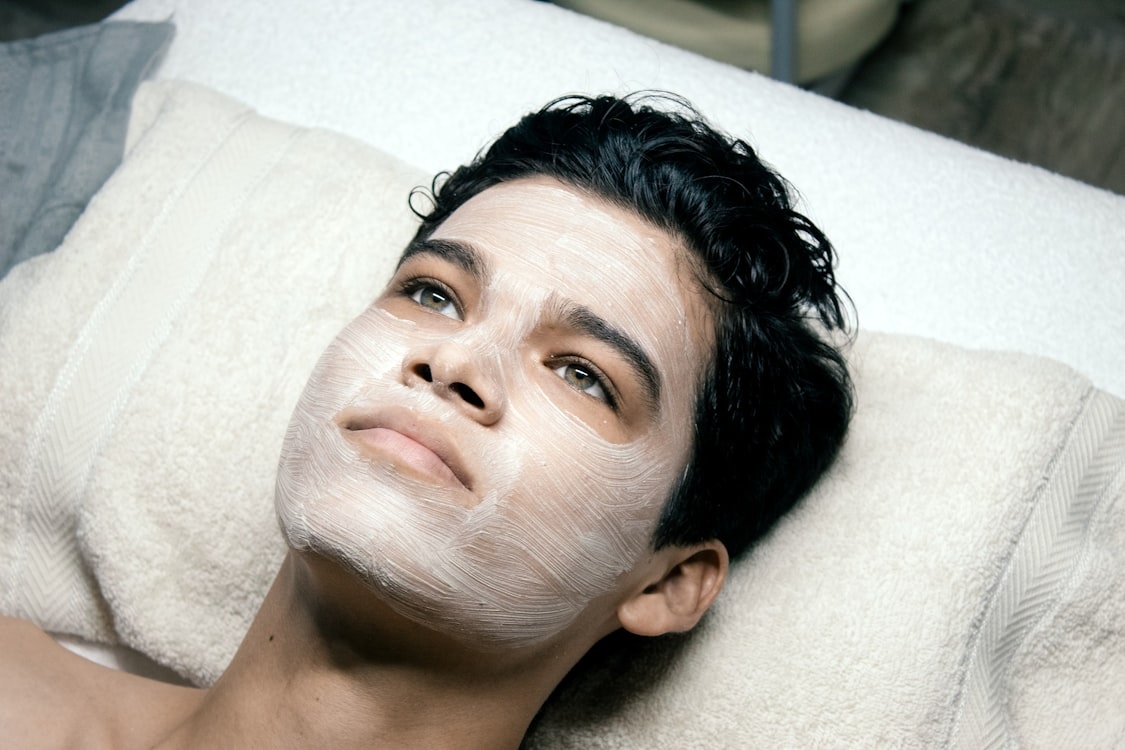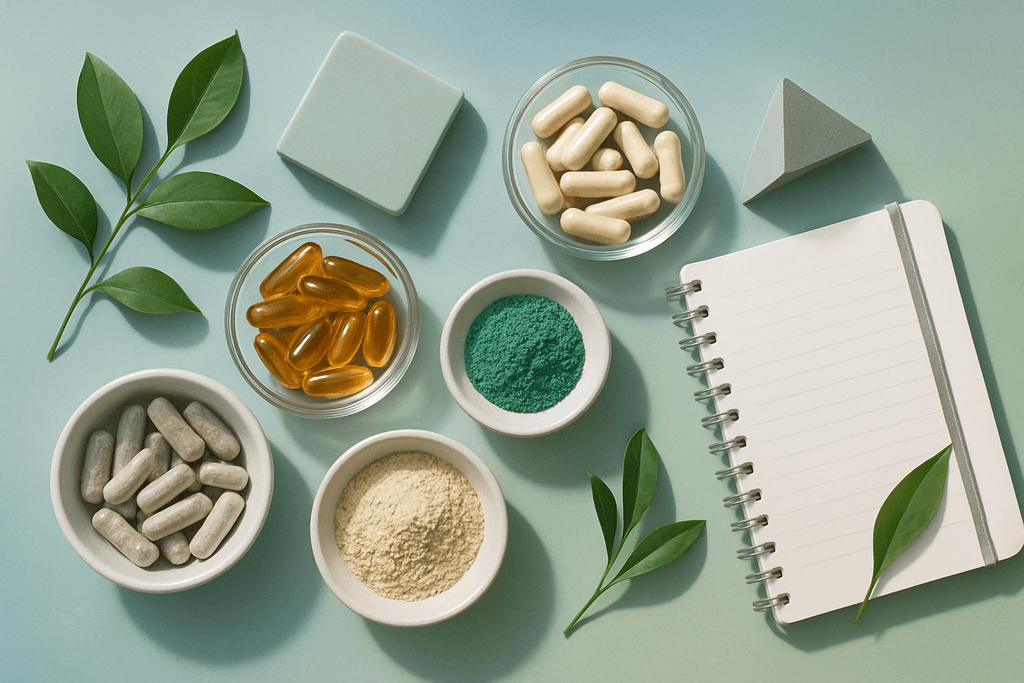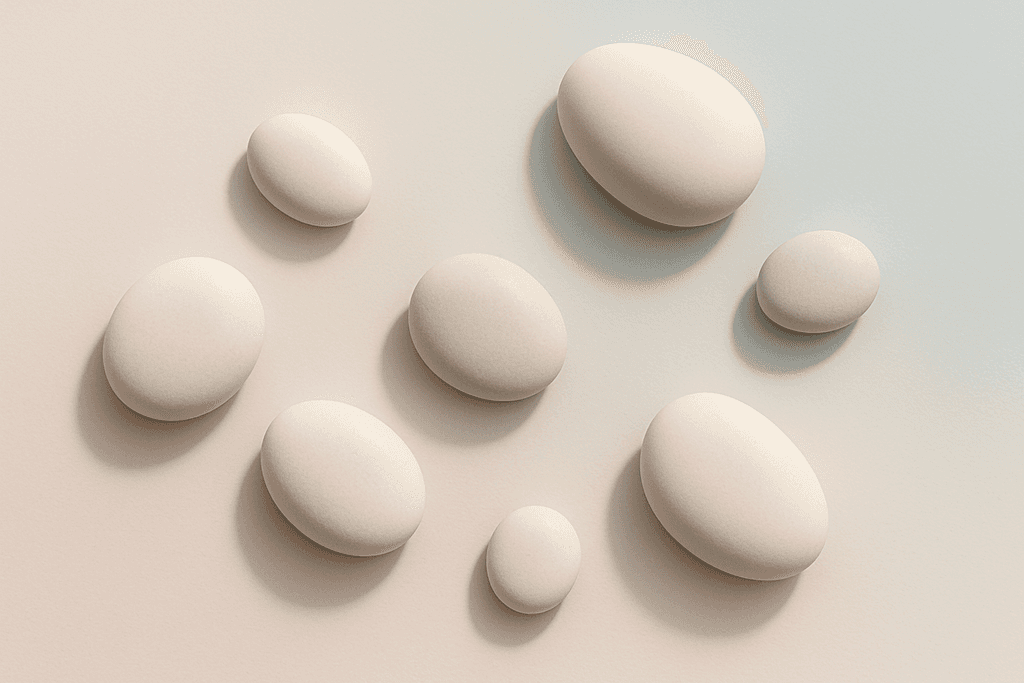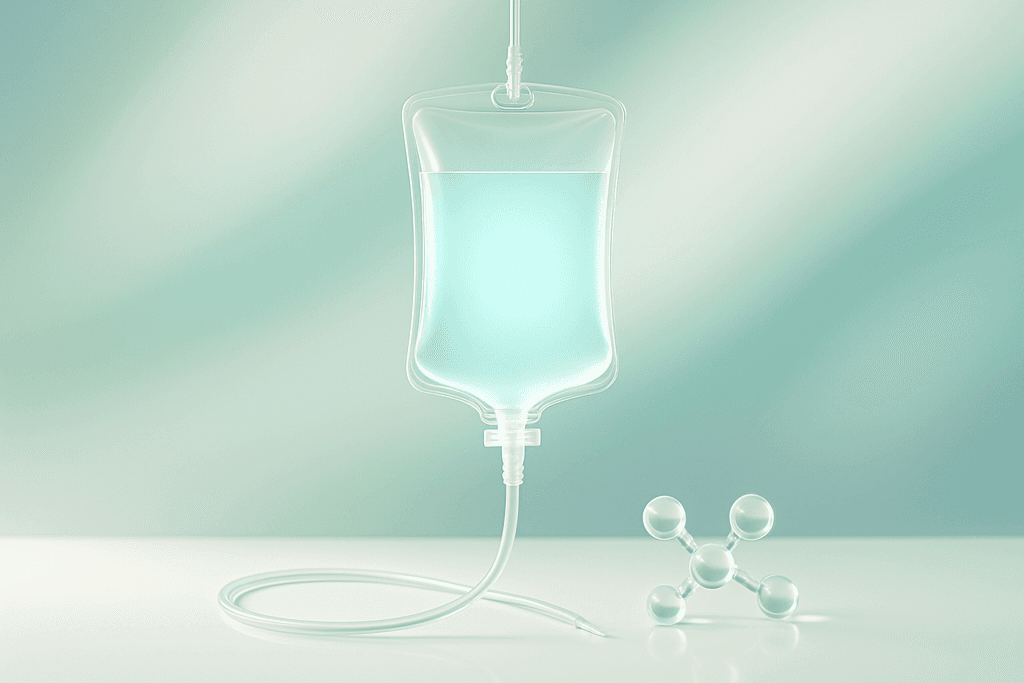Natural Ways to Support Collagen Production for Younger-Looking Skin

Table of Contents
- Understanding Collagen and Skin Aging
- Nutrition for Collagen Support
- Maximizing Results Holistic Collagen Support
- Wrap-up
- Common Questions About Natural Collagen Support
Understanding Collagen and Skin Aging
Our skin's youthful appearance relies heavily on collagen, a protein that gives it structure and elasticity. As we age, our bodies naturally produce less collagen, leading to visible signs of aging like wrinkles and sagging skin. But not all collagen is created equal - there are actually different types that play unique roles in our skin's health.
The main types of collagen in our skin include:
- Type I: The most abundant, providing strength and structure
- Type III: Supports skin elasticity and healing
- Type V: Helps with the formation of other collagen types
- Type VII: Forms anchoring fibrils that hold layers of skin together
Several factors can speed up collagen breakdown in our skin:
- UV exposure from sunlight
- Smoking and excessive alcohol consumption
- Poor diet lacking essential nutrients
- Chronic stress
- Lack of sleep
When collagen levels drop, you might notice these changes in your skin:
- Fine lines and wrinkles
- Loss of firmness and elasticity
- Dull, tired-looking complexion
- Slower wound healing
Understanding how collagen works in our skin is key to maintaining a youthful appearance. While we can't stop the natural aging process, we can take steps to support our skin's collagen production. At Caleyo Wellness, we offer treatments like our exclusive AutoCorre® protocol that stimulate collagen synthesis for natural, long-lasting skin rejuvenation.
| Age | Average Collagen Loss |
|---|---|
| 20-30 | 1% per year |
| 30-40 | 2% per year |
| 40+ | Up to 4% per year |
With this foundation, let's explore some natural ways to boost collagen and keep your skin looking its best.
Nutrition for Collagen Support
Your diet plays a huge role in keeping your skin looking young and healthy. Eating the right foods can actually help your body make more collagen naturally.
Some of the best collagen-boosting foods include:
- Bone broth - packed with amino acids that are the building blocks of collagen
- Egg whites - contain proline, an amino acid essential for collagen production
- Citrus fruits - high in vitamin C, which helps link amino acids during collagen synthesis
- Berries - full of antioxidants that protect existing collagen from damage
Beyond specific foods, certain nutrients are key for supporting collagen. Vitamin C is crucial, but don't forget about zinc, copper, and sulfur. You can find these in foods like nuts, seeds, and cruciferous veggies.
Antioxidants are also super important for protecting the collagen you already have. Load up on colorful fruits and veggies to get a wide range of skin-loving antioxidants in your diet.
Lifestyle Habits for Collagen Enhancement
What you do day-to-day has a big impact on your skin's collagen levels. Here are some habits that can make a real difference:
- Exercise regularly - it boosts circulation and stimulates collagen production
- Get enough sleep - your skin repairs and regenerates while you snooze
- Manage stress - high cortisol levels can break down collagen
- Stay hydrated - proper hydration helps maintain skin elasticity
Exercise is particularly powerful for collagen. It increases blood flow to your skin, delivering more nutrients and oxygen. This helps your skin cells function better and produce more collagen.
Sleep is when your body goes into repair mode. During deep sleep, your body produces more human growth hormone, which helps with collagen synthesis. Aim for 7-9 hours per night for optimal skin health.
Stress management is crucial too. Try these techniques to keep stress in check:
- Meditation or deep breathing exercises
- Yoga or gentle stretching
- Spending time in nature
- Engaging in hobbies you enjoy
Topical Treatments and Skincare Routines
While internal factors are important, what you put on your skin matters too. Certain ingredients can help boost collagen production when applied topically.
| Ingredient | How it Helps |
|---|---|
| Retinol | Stimulates collagen production and cell turnover |
| Vitamin C | Protects existing collagen and boosts new production |
| Peptides | Signal skin cells to produce more collagen |
You can find these ingredients in many over-the-counter skincare products. For a more potent boost, professional treatments can be really effective. At Caleyo Wellness, we offer advanced collagen-stimulating treatments like microneedling and chemical peels.
If you prefer a DIY approach, try this simple collagen-boosting face mask:
- 1 tablespoon honey
- 1 egg white
- 1/2 teaspoon vitamin C powder
Mix ingredients, apply to clean skin, leave on for 15-20 minutes, then rinse. The honey hydrates, egg white tightens, and vitamin C boosts collagen production.
Remember, consistency is key with skincare. Stick to a routine that includes gentle cleansing, regular exfoliation, and daily sun protection to keep your collagen levels up.
For those looking for more advanced solutions, our AutoCorre® treatment at Caleyo Wellness offers a powerful collagen boost. It's a minimally invasive procedure that kickstarts your skin's natural collagen production for lasting results.
Maximizing Results Holistic Collagen Support
When it comes to boosting collagen naturally, combining multiple approaches often yields the best results. Let's break down how diet, lifestyle, and skincare work together to support your skin's collagen production.
The power of synergy in collagen support:
- Nutrient-rich foods fuel collagen synthesis
- Lifestyle habits protect existing collagen
- Targeted skincare delivers active ingredients directly
By addressing collagen production from multiple angles, you create a comprehensive strategy for youthful skin. This holistic approach not only boosts collagen but also improves overall skin health.
Realistic expectations for collagen improvement:
- Initial changes: 4-6 weeks
- Noticeable improvements: 3-6 months
- Long-term results: 6-12 months of consistent effort
Remember, collagen production is a gradual process. Patience and consistency are key to seeing lasting results. While quick fixes might seem tempting, natural methods offer sustainable improvements to skin elasticity.
Tailoring your collagen-boosting plan:
- Consider your age, skin type, and specific concerns
- Adjust your approach based on lifestyle factors
- Consult with a skincare professional for personalized advice
At Caleyo Wellness, we understand that everyone's skin is unique. Our personalized consultations help identify the most effective natural methods for collagen production based on your individual needs. By combining expert guidance with a holistic approach, you can achieve optimal results in improving skin elasticity naturally.
Wrap-up
Boosting collagen naturally isn't rocket science, but it does take some effort. By tweaking your diet, lifestyle, and skincare routine, you can give your skin the building blocks it needs to stay firm and bouncy. Remember, consistency is key - your skin won't transform overnight, but stick with it and you'll see results.
While these natural methods are great for everyday maintenance, sometimes our skin needs an extra boost. At Caleyo Wellness, we offer treatments like microneedling and our exclusive AutoCorre® protocol that kick collagen production into high gear. These complement your at-home efforts, helping you achieve that youthful glow faster.
Ready to take your skincare to the next level? Our experts can help you create a personalized plan that combines natural methods with targeted treatments. Why not book a free discovery call to learn more? Your skin will thank you.
Now, let's tackle some common questions about collagen and skin health...
Common Questions About Natural Collagen Support
How long does it take to see results from natural collagen boosting methods?
Results vary, but most people start noticing improvements in skin texture and elasticity within 4-8 weeks of consistent use. For more significant changes, it can take 3-6 months. Patience and consistency are key when using natural methods to improve skin elasticity naturally.
Can I combine natural approaches with professional treatments?
Absolutely. Natural methods work well alongside professional treatments. For example, maintaining a collagen-boosting diet can enhance the effects of treatments like microneedling or chemical peels. At Caleyo Wellness, we often recommend combining our advanced aesthetic treatments with natural collagen support for optimal results.
What are the best practices for different skin types and ages?
For oily or acne-prone skin, focus on vitamin C-rich foods and zinc supplements. Dry or mature skin benefits from hydrating foods like fatty fish and avocados. Younger individuals should prioritize prevention with antioxidants, while those over 40 might need more intensive collagen support through diet and targeted supplements.
Are there any side effects to natural collagen boosting methods?
Natural methods are generally safe with minimal side effects. However, some people may experience mild digestive issues when increasing collagen-rich foods or taking supplements. It's always best to start slowly and consult with a healthcare provider, especially if you have any existing health conditions.
How do natural methods compare to collagen supplements?
Both can be effective. Natural methods provide a holistic approach, supporting overall health alongside collagen production. Supplements offer a concentrated dose of collagen precursors. Many find the best results come from combining dietary changes, lifestyle habits, and targeted supplementation under professional guidance.
Can stress affect collagen production?
Yes, chronic stress can negatively impact collagen production. It increases cortisol levels, which can break down collagen. Managing stress through techniques like meditation, yoga, or regular exercise is an important part of any natural collagen-boosting routine. Our wellness programs at Caleyo often incorporate stress management strategies to support skin health and overall well-being.



